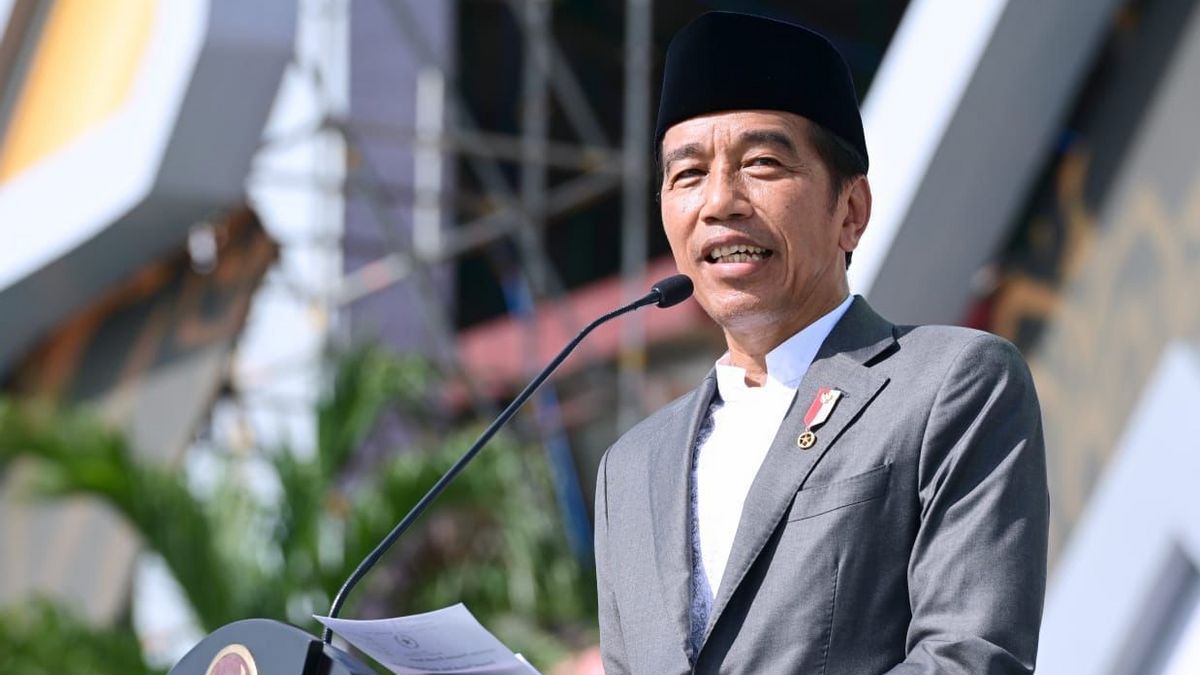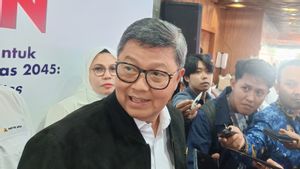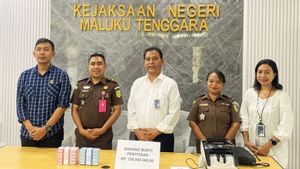JAKARTA - President Joko Widodo (Jokowi) believes that the decline in Indonesia's 2022 Corruption Perception Index (CPI) will not affect investors to invest in the country.
"That it will affect investment in Indonesia, I don't think so," said President Jokowi at the Jakarta Presidential Palace, Tuesday.
President Jokowi conveyed this in a press conference in response to the decline in the 2022 Indonesian Corruption Perception Index (CPI) with Attorney General ST Burhanuddin, Coordinating Minister for Political, Legal and Security Affairs Mahfud MD, Chairman of the KPK Firli Bahuri, and National Police Chief General Pol Listyo Sigit Prabowo.
Based on Transparency International Indonesia (TII) data, "Corruption Perception Index" (CPI) or Indonesia's Corruption Perception Index 2022 has dropped 4 points to 34 from the previous 38 in 2021 or is in the 110th position of 180 countries surveyed. In 2021, Indonesia's IPK score is 38 in the 96th rank.
"Because the calculated investors are big or not, the IRR ("internal rate of return") is how much, usually like that but that it affects a little bit, yes," added the President.
IRR is a calculation to measure the level of self-return used in carrying out a business or in other words a calculation to determine the level of efficiency of an investment.
"We have closed this twice, it will be a correction from the government to fix it," said the President.
The President acknowledged that various measurement indexes regarding Indonesia were used as government input.
"The Corruption Perception Index is the government's input and law enforcement officials to improve themselves. For this reason, I remind all levels of government at the central and regional levels to improve the government administration system and public service systems that prioritize transparency and accountability," added the President.
The GPA refers to 8 sources of data and expert assessments to measure corruption in the public sector in 180 countries and territories. The score from 0 means very corrupt and 100 very clean.
There are three data that have pushed the decline in Indonesia's GPA score, namely "Political Risk Service" (PRS) International Country Risk Guide (corruption in the political system, special payments and export-import bribery and suspicious relationships between politicians and business people) down from 48 to 35, the IMD World Competitiveness chance" (bribery and corruption in the political system) down 5 points from 44 to 39, and the Asia Risk Consultancy Political and Economic Risk Index (PERC) Risk Guide down from 32 to 29.
While the three stagnant indices are "Global Insight Country Risk Ratings" (the company's risk in dealing with corrupt and bribery practices for running a business) at 47, "Betelsmann Foundation Transformation Index" (punishing public officials who abuse authority and the government control corruption) at 33 and "Economic Intelligence Unit Country Ratings" (clear procedures and public fund accountability, abuse of public resources, civil apparatus professionalism, independent audit) remains at 37.
Furthermore, there are two indexes that have increased, namely "World Justice Project Rule of Law Index" (officials at the executive, legislative, judicial, police, and military use authority for personal gain) the score has increased by 1 to 24 from 23, and "Varieties of Democracy" (depth political corruption, political corruption in the executive, legislative and judicial, corruption in the bureaucracy, corruption in the bureaucracy, major and small corruption that influence public policy) up 2 points to 24 from 22.
Based on TII's analysis, economic indicators experience major challenges between the professionalism of the company in implementing an anti-corruption system with state policies that loosen the ease of investing. Indonesia is faced with a choice of whether to really look for investors from countries with high anti-corruption standards or which investors are important to contribute to economic growth.
The second analysis, in terms of political indicators, does not change significantly because political corruption is still rampant because it is still found that the type of corruption of bribery, gratification is found so that conflicts of interest between politicians, public officials and business actors are still common. Business actors who come to Indonesia experience the risk of material losses and political risks while doing business.
The third analysis of law enforcement indicators shows that anti-corruption policies have not been effective in preventing and eradicating corruption because corrupt practices are still found in law enforcement agencies.
The English, Chinese, Japanese, Arabic, and French versions are automatically generated by the AI. So there may still be inaccuracies in translating, please always see Indonesian as our main language. (system supported by DigitalSiber.id)













